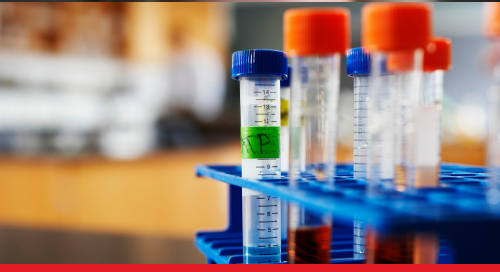Good Teaching is Good Teaching: Learning Science and Student Success in the time of COVID-19 with Dr. Robert S. Feldman
Let’s start with a quiz: The average student today is…
A. Struggling to keep a balance between staying safe and maintaining a normal life
B. Scare, depressed and worried about the future
C. A bit lost, and a bit angry
D. All of the above
I think we can all agree that “D” would be the most common answer when we think about these unprecedented times we are living in. So, the question becomes what can educators do?
In this first-ever Psych-Ed Talk, Dr. Feldman explores this question along with three other key questions:
What is happening to higher education and students today?
When you look at the national landscape of reopening plans it’s a pretty chaotic landscape. Some schools are fully or primarily in person, others are hybrid, some are primarily or fully online, a few are still undermined. Not to mention it’s as Dr. Feldman points out a “moving target”—constantly evolving as new COVID-19 cases emerge. Instructors, like yourself, must be ready to transition into Plan B, or even C, as these re-opening plans shift. From a student perspective, what does this look like? How is it affecting them?
Students are struggling with COVID restrictions: social distancing rules imposed, frequent required COVID testing, forced transition to online learning, overturned routines, damaged relationships, and strained support systems are just a few to be named. Dr. Feldman attests this to “student reactions to COVID restrictions are exacerbated by their immature brains,” pointing to risky behavior which peaks in late teens/early 20s. “In some way, we’re asking students to exercise significant self-control at a time when they are genetically programed to be the riskiest of their lives,” Feldman mentioned.
What are the short-and-long-term challenges we face with students during a pandemic?
Nearly two-thirds of adults aged 18-24 have either changed or canceled their education plans. And, as Dr. Feldman points out, “we just don’t know” if the student experience will rebound post- COVID. With financial struggles, dealing with grief and trauma, and changed worldviews, we can’t possibly know how this will impact their decision-making moving forward.
Student mental health is also a big cause for concern with high percentages indicating they’re suffering from stress or anxiety, disappointment or sadness, loneliness or isolation, financial setbacks, and relocation. Racial and Socioeconomic disparities are also exacerbated by COVID: higher levels of stress in People of Color, Internet access is more limited for students living in poverty, differences in availability of adequate hardware, and physical spaces to study may be less available.
What can learning science tell us about how to promote student success in the current environment?
Learning science is a multidisciplinary field focused on how people learn, and how they can learn better. It focuses on the scientific principles underlying learning, teaching, and educational practice, and can provide educators with practical solutions that can increase student success in a significant way.
Five key principles of instruction drawn from “Learning Science for a COVID-World,” that Dr. Feldman points out are:
- Good Teaching is good teaching, whether we are teaching face-to-face or online.
How material is delivered is less important than the quality of instruction. Dr. Feldman suggests avoiding long lectures! Instead, follow the 10-minute rule—don’t do anything longer than 10 minutes. - Active learning that promotes student engagement is central to student success.
Make material meaningful and relevant to students’ goals by personalizing the material, providing multiple opportunities to engage with the material, use interactive tools, polls, video clips, and other involving exercises. Furthermore, reply quickly to student questions and comments. Let them know you are engaged with them! - Provide opportunities for student-to-student and student-instructor interaction.
Supporting students’ relationships and connections with others is essential: create a climate of care! Make assignments that require students to work with their classmates: short-term synchronous projects, peer instruction, discussions or debates, collaborative brainstorming. Provide opportunities for student-instructor engagement by making yourself accessible to students: formal office hours, engagement on Twitter, Facebook, etc. - Teach students how to be successful: good students are made, not born.
Help students become agile learners by providing direct instruction in study skills specific to your course topics like effective reading and test-taking strategies. Offering advice on “soft skills” like Zoom etiquette is another life skill that will benefit students today and in the future. - Use technology to personalize the delivery of course materials.
College students embrace technology. It can be personalized to address students’ specific needs and concerns. Adaptive technologies produce significant improvements in persistence, retention, and graduation rates. This is based on learning science. In McGraw Hill Connect’s SmartBook, students are assessed on knowledge and confidence levels and the system adapts to the student’s needs. It also allows for more targeted instruction by faculty and more data-driven instructional decision making at institutions.
Psych-Ed Talks are a new webinar series by McGraw Hill designed to help circulate ideas in the world of psychology and teaching psychology. The next one will be given by Dr. Laura A. King entitled “The Art and Science of Survival during a Pandemic” on Friday, October 16, 2020, 2:00pm EDT/1:00pm CT. You can register here.


